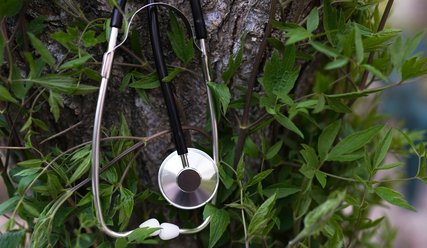GP Future Workforce Requirements Report highlights
Originally published in the New Zealand Herald, following the release of the ‘The GP Future Workforce Requirements’ report, this piece highlights the workforce shortage general practice and rural hospital medicine is facing.
In New Zealand there are around 5,600 specialist general practitioners across 1,000 practices who provide 14 million consultations each year. People can rely on seeing ‘their doctor’ and 94 percent of you do, making your GP your first point of call for healthcare advice and support.
But new research out today confirms that general practice is a workforce in crisis and that’s not good news for you. We need the Government to urgently address how many doctors are training as GPs to avoid an even greater healthcare crisis. In New Zealand there are about 74 GPs per 100,000 people in New Zealand, fair fewer than Australia (116) and Canada (122). And unless change is made now, then in nine years in 2031 that will have fallen to 70 GPs in New Zealand per 100,000.
Additional GPs in the community will have a measurable impact on the health of New Zealanders. For example, 10 extra GPs per 100,000 people means about 30 people a year wouldn’t die from cancer, respiratory, and cardiovascular issues.
So, what needs to happen to mitigate the shortfall in a workforce that is so crucial for the health care of the community?
We need more medical students to see general practice and rural hospital medicine as a viable and rewarding career choice and we need the workforce to be visible alongside others in the sector who are providing care in the community. We are the ones providing complex, integrated, continuous and timely medical treatment in the community.
Throughout the pandemic, general practitioners and rural hospital doctors have proven to be integral to every part of the response; vaccination, swabbing, and now COVID care in the community. This is on top of our business-as-usual services; childhood and flu immunisations, cancer screening, ensuring your mental health needs are met, and providing support and advice for the myriad of health puzzles we solve daily.
Continuing to provide equitable health outcomes is also a priority for GPs. Data shows Māori and Pasifika populations are likely to have greater health needs and be more vulnerable to illness, as we have seen throughout the COVID-19 pandemic.
These unmet health needs are not going to be solved if there are no GP appointments available for patients or their whānau when they need it. We need to be constantly reflecting on and changing how we deliver care in our communities, as there is no one-size-fits-all solution.
To become a specialist general practitioner takes between 11 -14 years of study. Like other health professionals, we are a compassionate bunch, and we take the health of our communities seriously.
Communities need specialist GPs who have the training and the knowledge to provide the comprehensive and complex continuity of care that is required for all patients. GPs provide cradle to grave care and see everything in between.
General practice is challenging but extremely rewarding. We thrive on expecting the unexpected. Our skills and knowledge mean we often play the roles of medical detective and life coach. We build long lasting relationships with patients and whānau and this allows us to see beyond the overt symptoms that we are presented with and make a real difference to their health outcomes and lives.
We are always here for you. But we need more of us.
The Royal New Zealand College of General Practitioners commissioned ‘The GP Future Workforce Requirements’ report to outline the challenges and offer practical changes that could boost the GP workforce.
Related

11 September 2025 | College and members
GPs want patients to be seen, heard and known

21 May 2025 | College and members
Budget 2025 opinion: We don't need to create a new health service, we need to invest in the current one

26 March 2025 | College and members